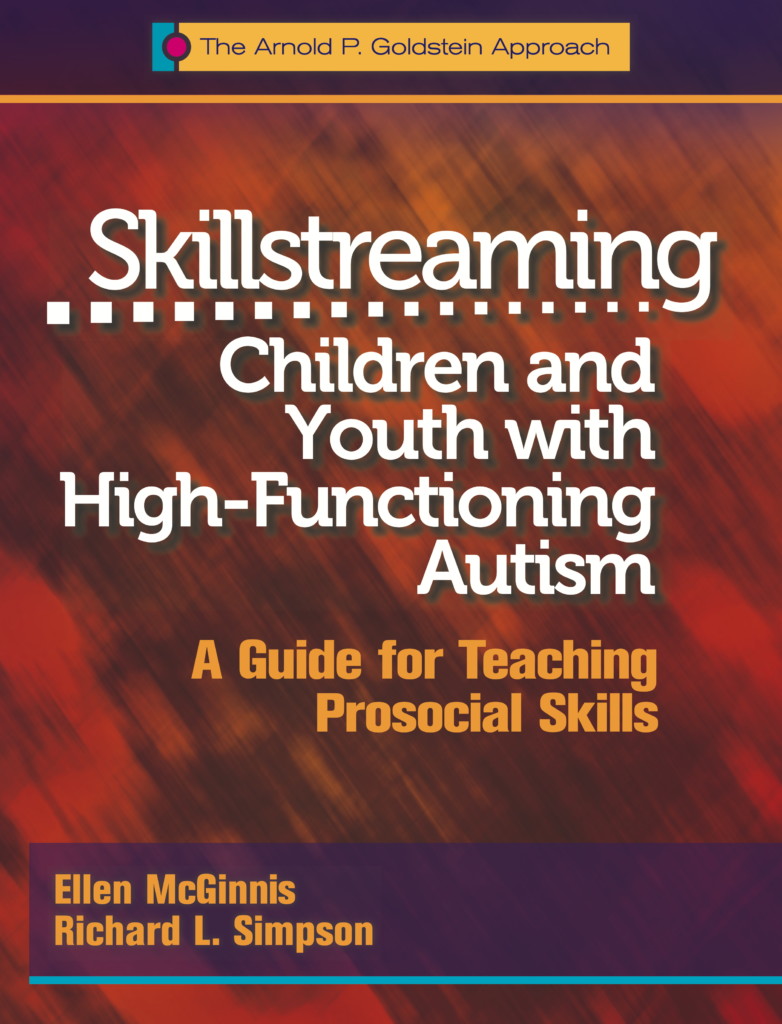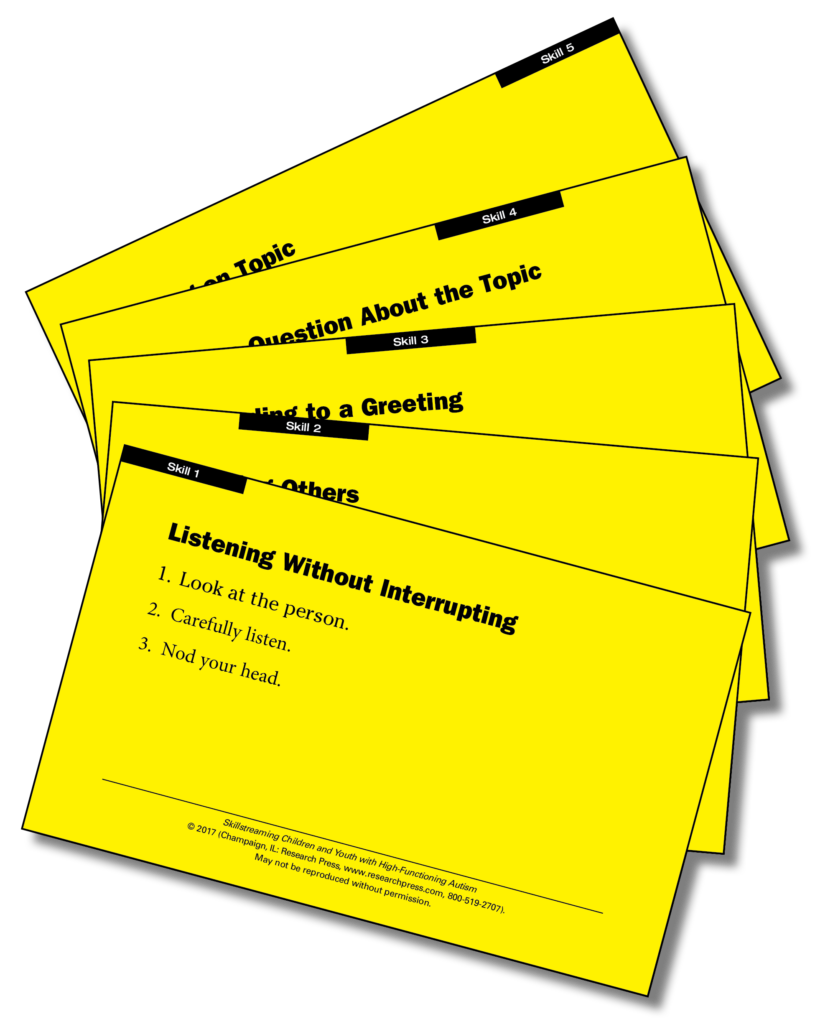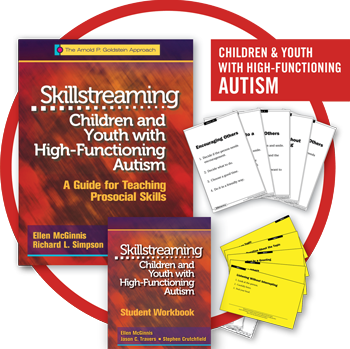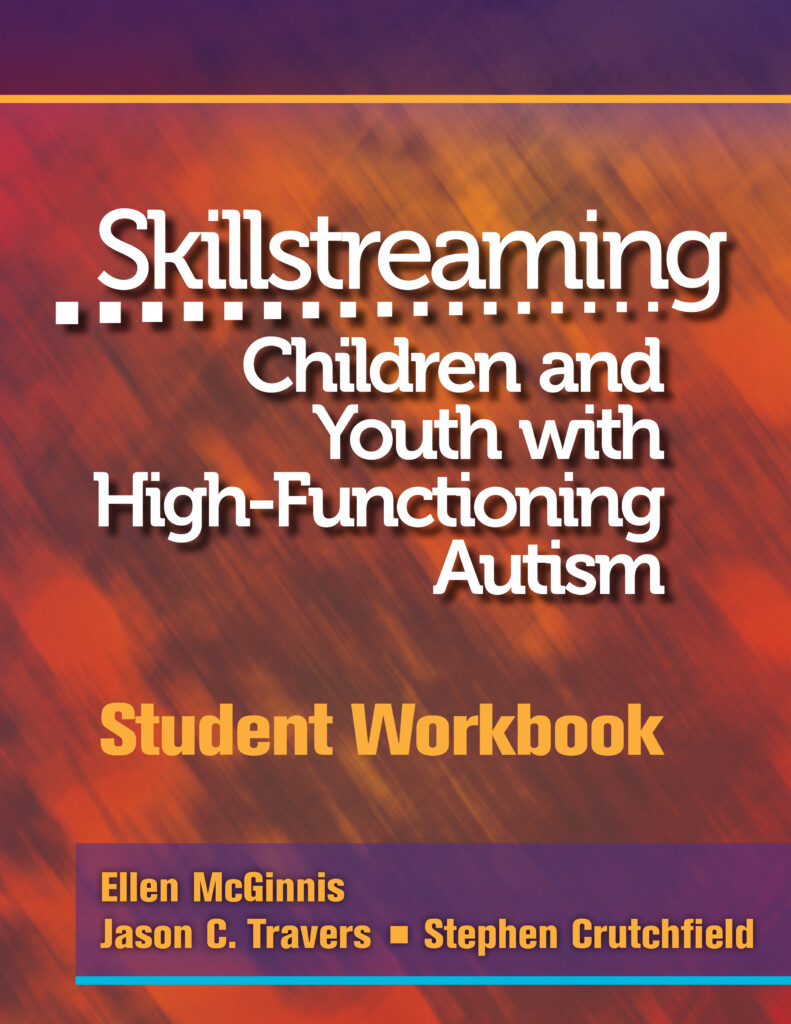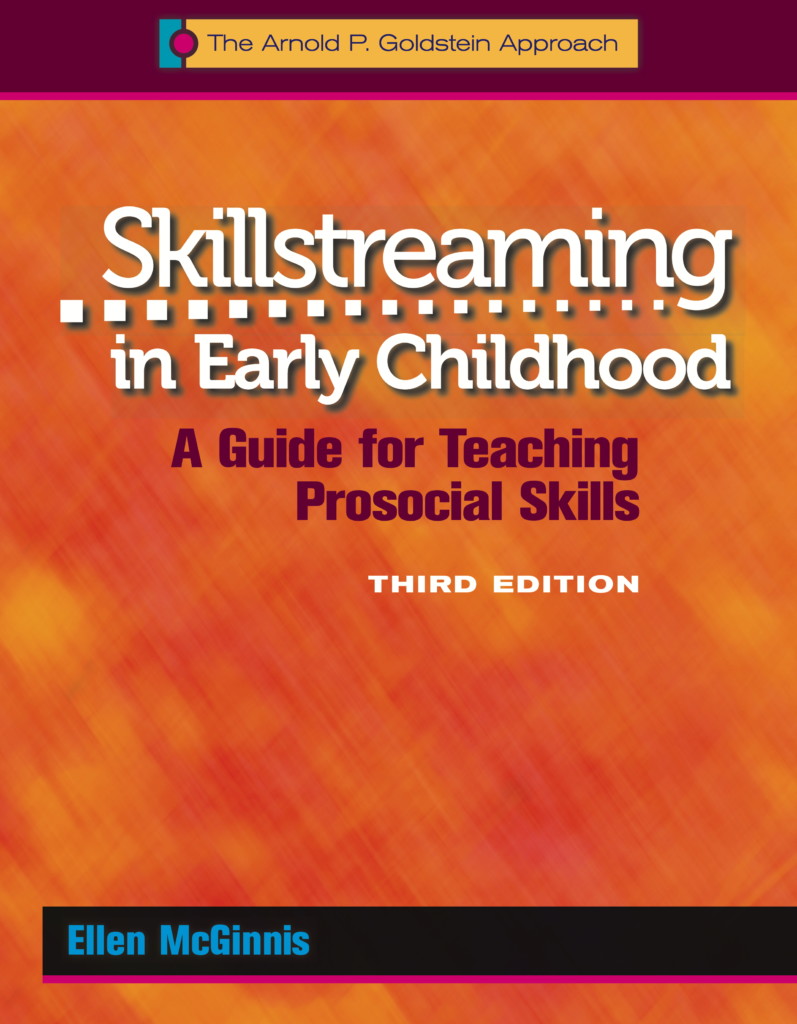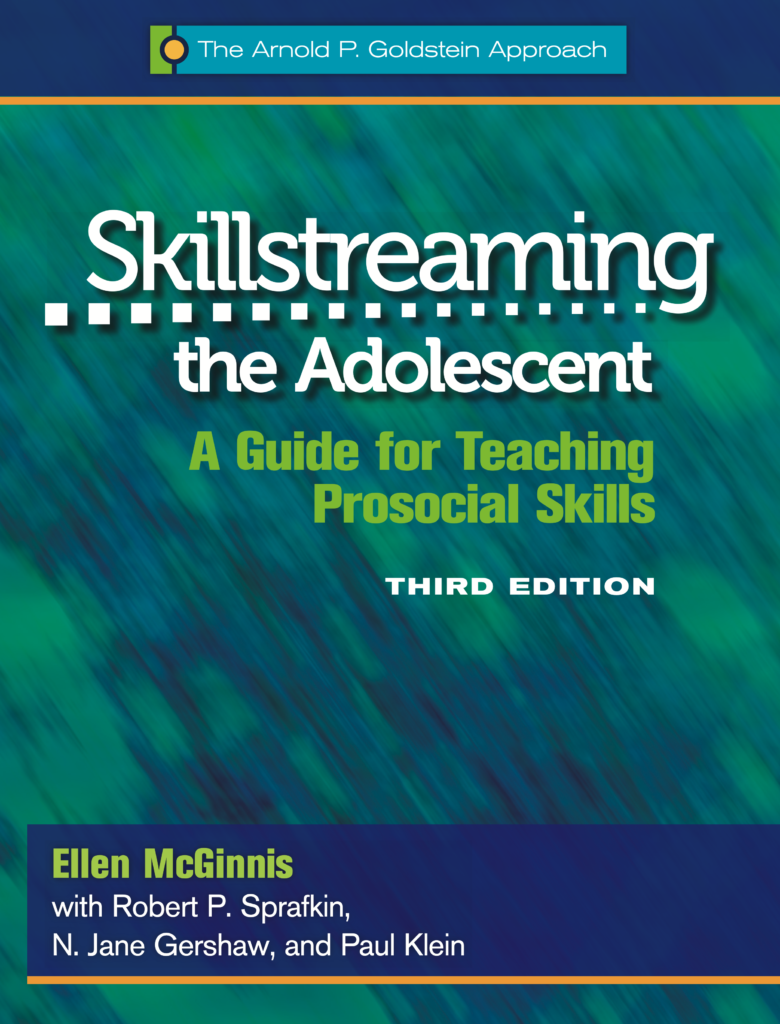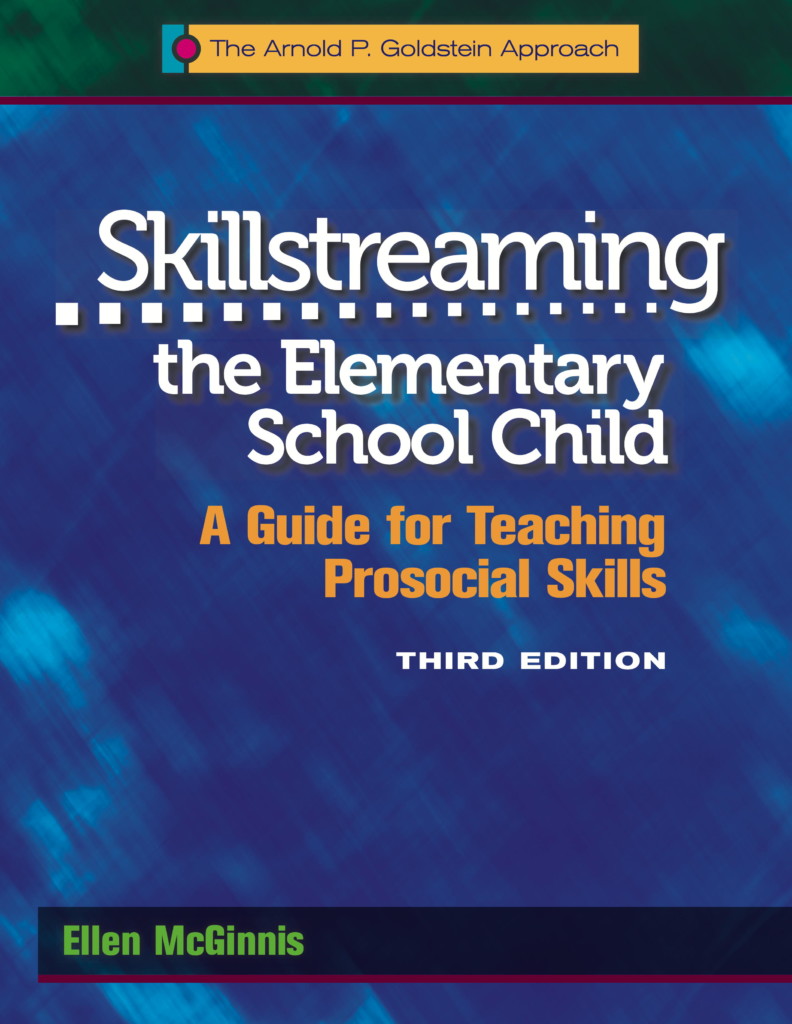A set of 80 posters (12×18″) displaying the behavioral steps in each of the skills in the Skillstreaming Children and Youth with High-Functioning Autism program.
NOTE: It is essential for successful implementation of this curriculum to first have the program book (Skillstreaming Children and Youth with High-Functioning Autism: A Guide for Teaching Prosocial Skills) before attempting to utilize other Skillstreaming products.
“McGinnis and Simpson led the way for social skill intervention for individuals on the autism spectrum with the innovative program book The Skillstreaming: Children and Youth with High-Functioning Autism: A Guide to Teaching Prosocial Skills.
Research Press has just released the Student Workbook and the Student Workbook Group Leaders’ Guide that accompanies the program. This is exciting for the field of autism—practitioners who work daily with children and youth and students who struggle with excesses or deficits in social skills. The detail of lesson plans, scenarios and activities which these two supplemental books were designed will enhance the program effectiveness and certainly support practitioners’ abilities to implement lessons with high fidelity! This translates to improving the skills of their students/clients to achieve social success and all the benefits of full inclusion in their social world and the community in which they live.
As I reviewed these books the first thought I had was how helpful they would have been during my teaching years. As a teaching professor I know how important they will be for every teacher and related service provider whom I teach and mentor. Thank you to Dr. McGinnis for continuing the vision that you and Dr. Simpson shared. Also, a special appreciation to our colleagues Jason Travers and Stephen Crutchfield for stepping up to continue this critical work!”
-Deborah E. Griswold, PhD, assistant professor for practice in the Department of Special Education at the University of Kansas
“Social skills are essential to navigating the complexities of everyday routines, accessing important reinforcers, and developing meaningful and lasting relationships. Unfortunately, some of us have difficulties acquiring extensive and flexible social skills repertoires, especially given recent events that have impacted the way we interact with each other daily. In this important resource, McGinnis and colleagues provide guidance on teaching social skills in ways that are relevant, person-centered, and dignifying to autistic learners. This powerful tool, though directed to those serving autistic students, is broadly applicable and should be on the shelf of every classroom teacher.”
-Robert Pennington, Lake & Edward J. Snyder, Jr. Distinguished Professor in Special Education, Department of Special Education and Child Development, University of North Carolina Charlotte
“The Skillstreaming Group Leader’s Guide and Student Workbook are the perfect companions to the Skillstreaming learning procedures. These materials bridge the science-based information from Skillstreaming instruction so that students, teachers, and families can access and apply this quality social skill instruction in meaningful and effective ways. The authors combine sound research-based strategies with their direct knowledge of teaching students with high-functioning autism. The result is a set of tools that are relevant, engaging, and promote generalization and maintenance of skills over time. Well done!”
-Leah Wood, PhD / BCBA-D, Associate Professor / Cal Poly School of Education, Co-Coordinator / Special Education Masters and Credential Program, Co-PI of TIER / Teaching for Inclusivity and Equity Residency, President / Division on Autism and Developmental Disabilities
“I have been a fan of the Skillstreaming series for years. When I was first starting out as a special education teacher, I found the series to be the best version of social skills programming for helping children understand the complex world of social development. After 20 years of using Skillstreaming with my students with autism and behavior disorders, I believed that I was an expert in my approach to using the curriculum. It became clear after reviewing the workbook and group leader’s guide that I was just scratching the surface. McGinnis, Travers, and Crutchfield created an incredibly powerful tool with this material. They showed me ways that I had never thought of using the curriculum and this has improved my ability to provide a richer and deeper understanding of social development for my students. This is an easy-to-use guide and a leap forward in enhancing the Skillstreaming curriculum. For anyone looking for a powerful social skills program for children with high functioning autism, they should look no further!”
-Matt McNiff, Ph.D., Behavior Consultant and Director of Special Education for Educational Service Unit #5



